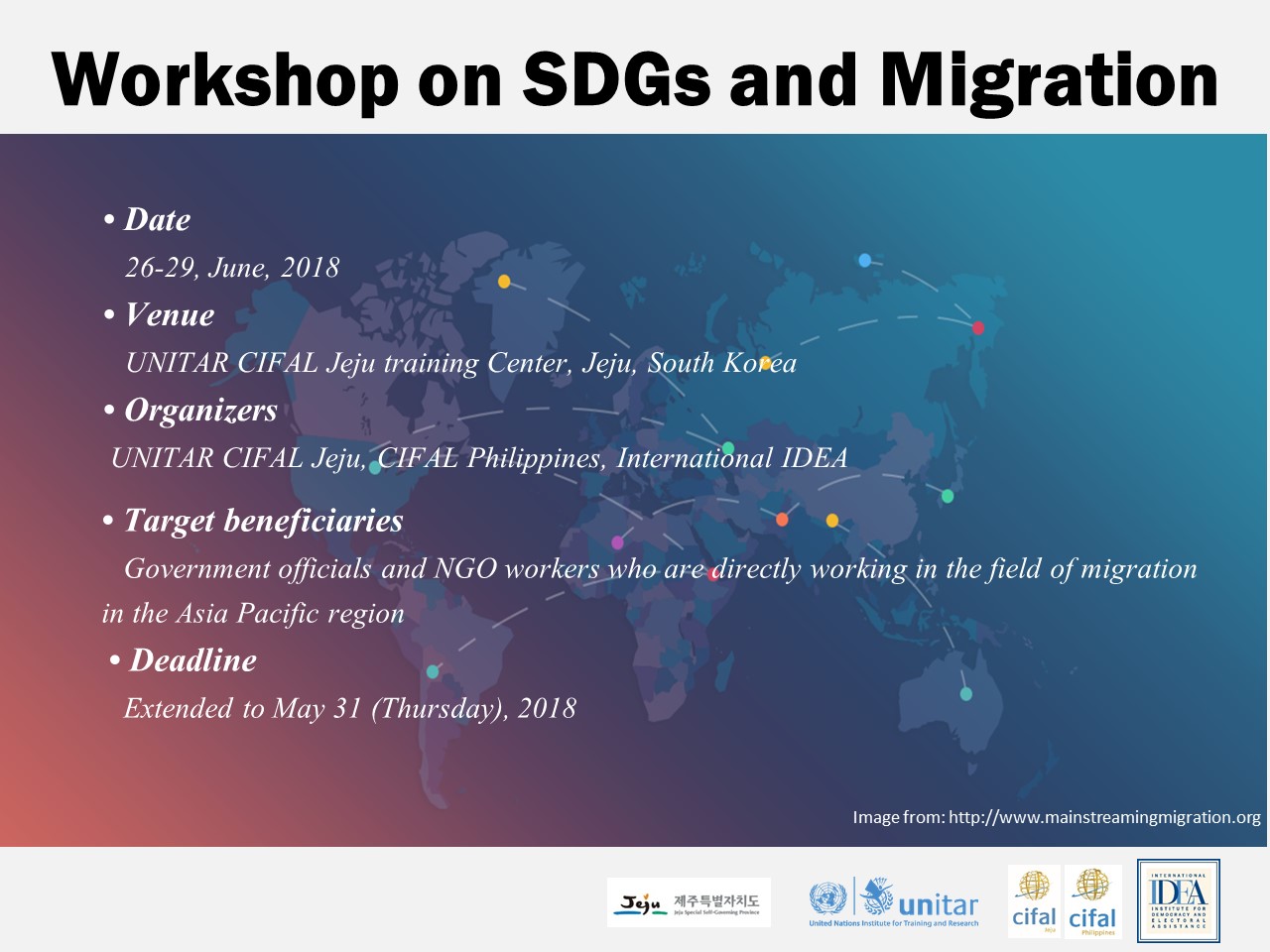|
Workshop on SDGs and Migration 26-29 June 2018 (Jeju, Korea) Background Over the past few decades, globalization andtechnological advancements have significantly boosted human mobility. As of2017, UN DESA estimates that 258 million people – 3.3 percent of the globalpopulation – are international migrants. While the proportion of migrants to those who remain in their country ofbirth is relatively small, the total number of people who cross internationalborders to live, work, study or seek refuge has grown by 49 percent since 2000,and experts predict that migrant flows will continue to increase in the yearsto come. Migration has thus become a major issue on theinternational agenda. In September 2016, the UN General Assembly convened todevelop a comprehensive approach to matters involving migrants and refugees – afirst in the forum’s history, underscoring the growing importance ofinternational cooperation on migration governance. All 193 UN member states signed the New YorkDeclaration for Refugees and Migrants, signifying global solidarity and commitmentto addressing all aspects of international migration, including humanitarian,development and human rights issues. The UN is now developing a Global Compact forMigration to facilitate safe, orderly and regular diaspora and protect thehuman rights of migrants. However, since the signing of the New YorkDeclaration, negotiations on the agreement have faced several challenges,including the withdrawal of the United States in December 2017. US Ambassadorto the UN Nikki Haley said the declaration is “not compatible with USsovereignty,” and that the country’s “decisions on immigration policies mustalways be made by Americans and Americans alone.” This withdrawal from a landmark internationalagreement illustrates the tensions brought about by migration, especially in policyareas that represent core components of state and sovereignty. Migrationgovernance has become a balancing act of protecting migrants’ rights while alsoprotecting borders. According to International IDEA’s Global State ofDemocracy, large migration flows strain democratic institutions’ capacity toeffectively integrate migrants into society, and call into question the extentto which governments can and should enable migrants’ politicalparticipation. Migration also affectsdemocratic institutions and processes in migrants’ countries of origin ascitizens abroad seek to influence policies at home. The figures andpolitical and social developments are impetus for CIFAL Philippines, CIFAL Jejuand the International Institute for Democracy and Electoral Assistance(International IDEA) to jointly convene a workshop on the nexus of migrationand democracy, specifically, the challenges to protecting migrants’ rights. Content and structure The workshop contents are composed of the following: ● Session 1: Migrationdata for sustainable development ● Session 2 [Jeju forum]:Implementation of safe, orderly, and regular migration (SDGs. Target 10.7) inthe region ● Session 3: Civil rights with gendercomponent focus on marriage migrants and children of interracial relationships ● Session 4: Political rights focus onpolitical participation and voting rights ● Session 5: Economic rights focus onlabor migrants and social protection mechanisms ● Session 6: Prevention and combattinghuman trafficking in persons ● Session7: Empowerment of migrants and societies to realize full inclusion and socialcohesion ● Session 8: InternationalCooperation for migrants ● Session 9: CityShare
Methodology The training will be comprised of: ● lectures and presentations by experts ● practical exercises and group discussion ● UNITAR CityShare Methodology ● action plan presentation ● study visit Target audience This training is open to local government officialsand other related personnel from civil societyorganizations and institutions who directly work in the field of migration inthe Asia Pacific countries. Event detail
Application and deadline
Assistance with travel expenses · UNITAR CIFAL Jeju/JITC provides a LIMITED financial assistance with the airfare to Jeju-do, Republic of Korea.
· Local expenses (transportation,accommodation and meals) during the workshop will be covered by UNITAR CIFALJeju/JITC except for arrival and departure days. · All other expenses (localtransportation in their country, visa fee) should be covered by theparticipants. |
||||||||||||||||||||||||||||||||||||||||||||||||||









